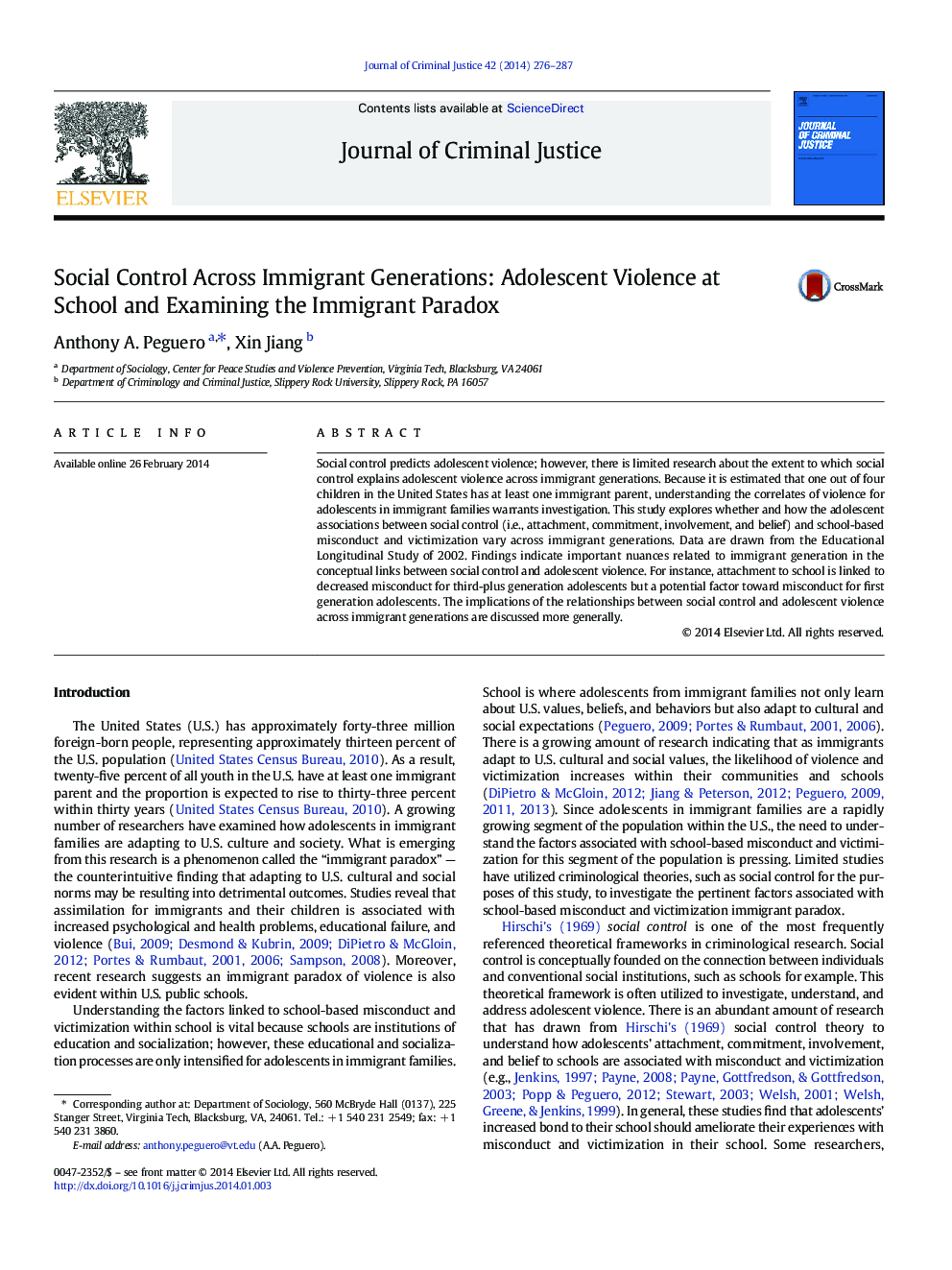| Article ID | Journal | Published Year | Pages | File Type |
|---|---|---|---|---|
| 882766 | Journal of Criminal Justice | 2014 | 12 Pages |
•Social control is linked to first and second generation misconduct and victimization.•With controlling for social control, the adolescent violence “immigrant paradox” remains evident.•School-based involvement may be placing immigrant adolescents at risk of victimization.
Social control predicts adolescent violence; however, there is limited research about the extent to which social control explains adolescent violence across immigrant generations. Because it is estimated that one out of four children in the United States has at least one immigrant parent, understanding the correlates of violence for adolescents in immigrant families warrants investigation. This study explores whether and how the adolescent associations between social control (i.e., attachment, commitment, involvement, and belief) and school-based misconduct and victimization vary across immigrant generations. Data are drawn from the Educational Longitudinal Study of 2002. Findings indicate important nuances related to immigrant generation in the conceptual links between social control and adolescent violence. For instance, attachment to school is linked to decreased misconduct for third-plus generation adolescents but a potential factor toward misconduct for first generation adolescents. The implications of the relationships between social control and adolescent violence across immigrant generations are discussed more generally.
